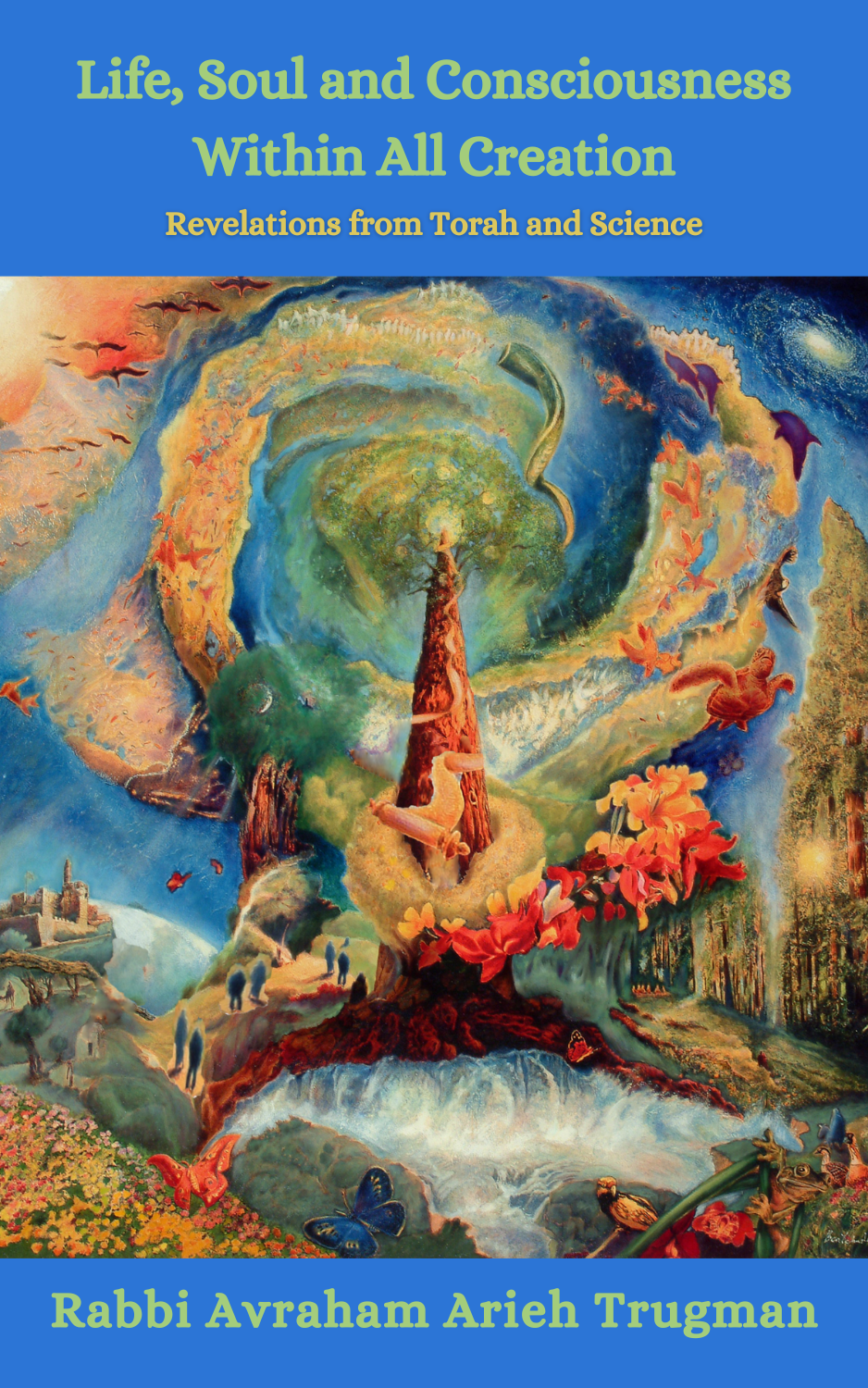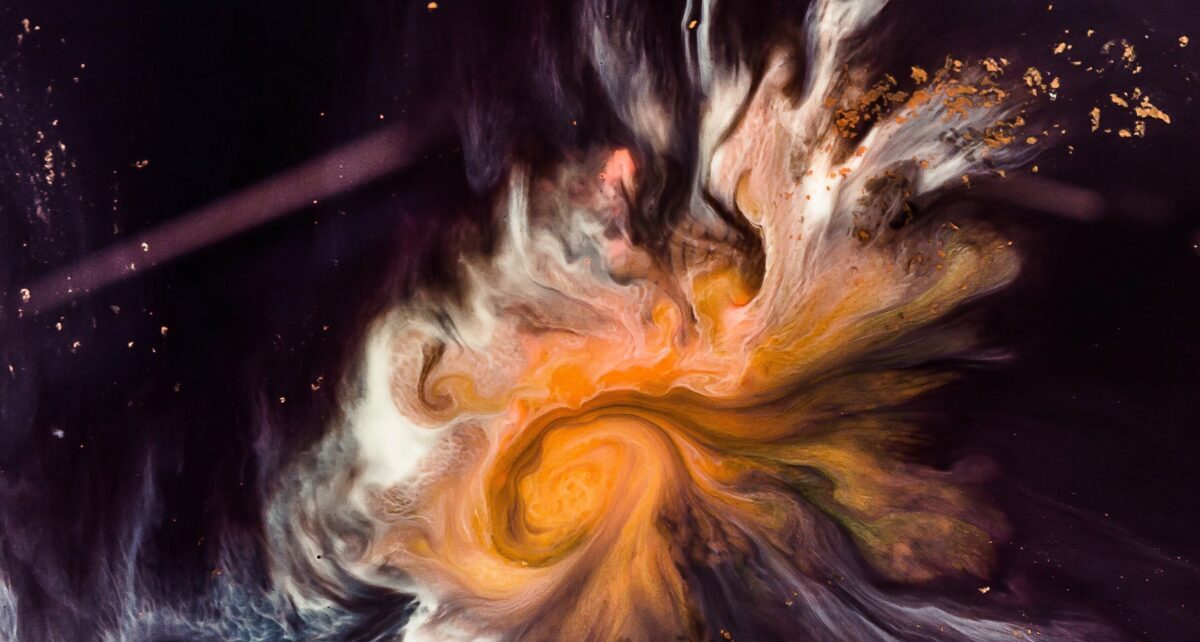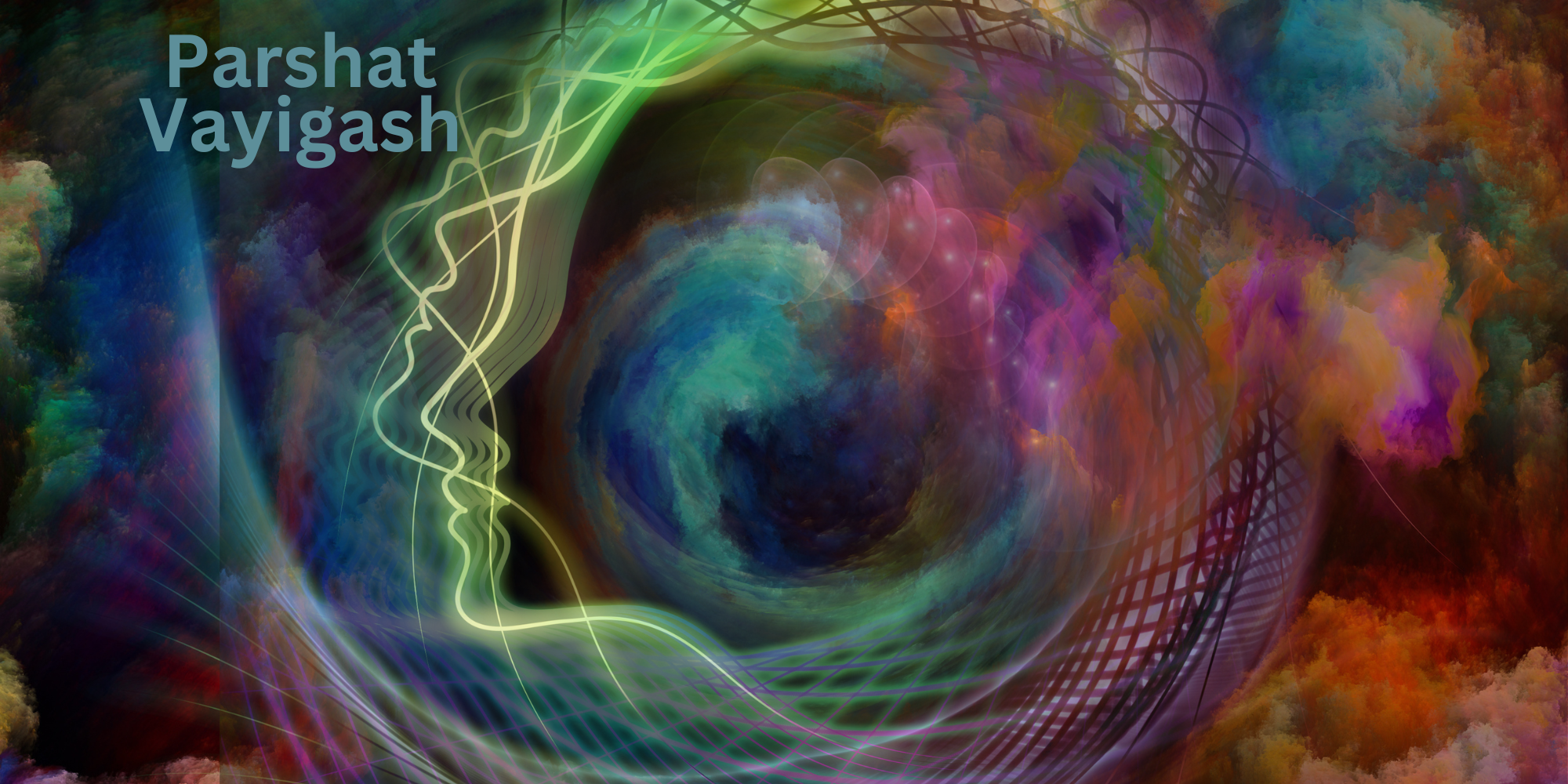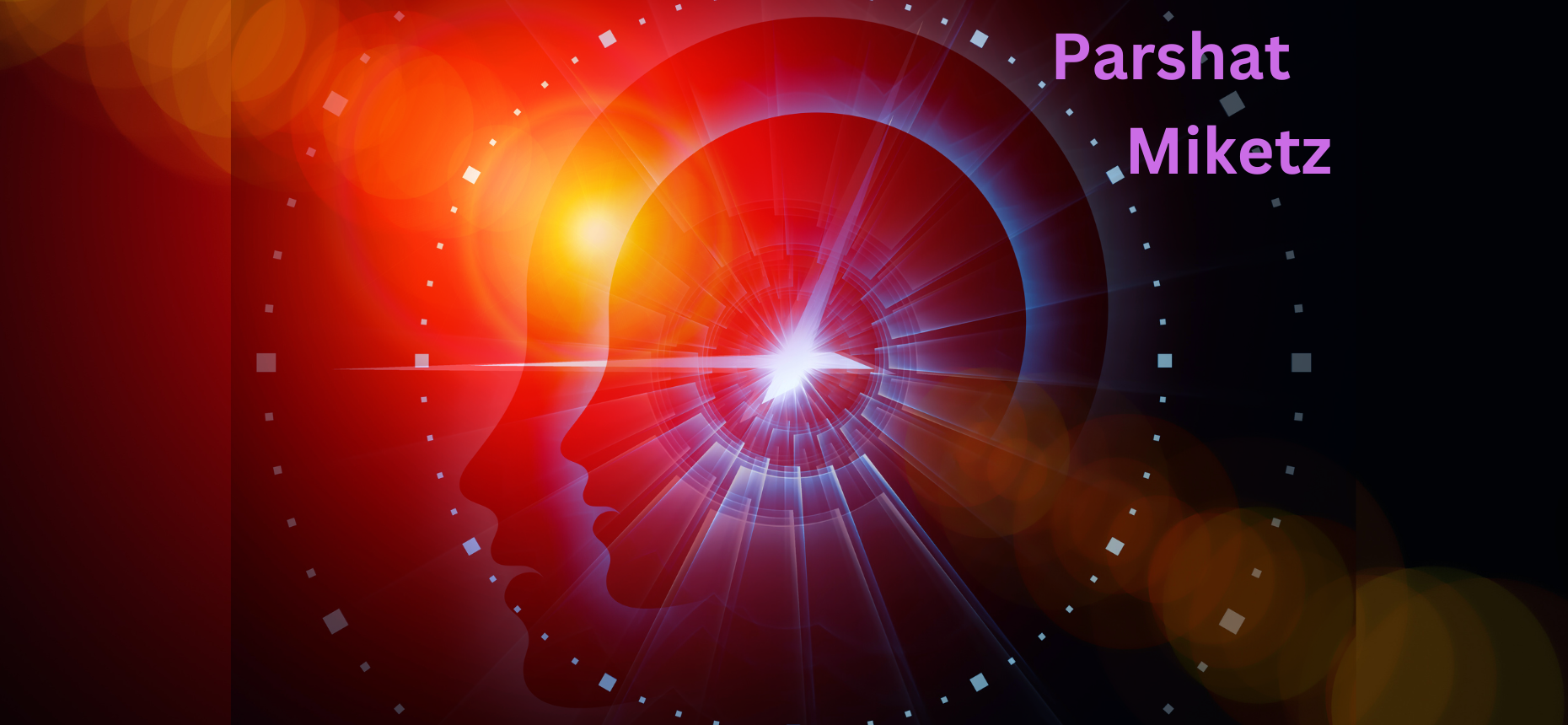It is related regarding the auspicious days leading up to the giving of the Torah on Mt. Sinai: “On the [first day of the] third month from when the children of Israel left Egypt, on this day they came to the desert of Sinai” (Exodus 19:1). Rashi comments that since it would have been more appropriate for it to be written “on that day,” the fact that it states “on this day” teaches us that words of Torah should be experienced anew as if they were given today.
![]() This Rashi highlights one of the biggest challenges we face in every day life, whether in association to Judaism, one’s work, relationships or the routine matters of life – how to constantly renew ourselves when much of what we do is repetitious and habitual.
This Rashi highlights one of the biggest challenges we face in every day life, whether in association to Judaism, one’s work, relationships or the routine matters of life – how to constantly renew ourselves when much of what we do is repetitious and habitual.
![]() An allusion to the solution to this problem is found in the special sacrifice of two loaves of bread from the new wheat harvest – “a new offering to God”- prescribed by the Torah on the holiday of Shavuot, celebrating the giving of the Torah to the Jewish people. The “new offering” reveals that there is an essential and intrinsic connection between newness and Torah, which when fully integrated into our consciousness serves as not only an intellectual remedy to boring routine, but as a powerful and practical guide to everyday life.
An allusion to the solution to this problem is found in the special sacrifice of two loaves of bread from the new wheat harvest – “a new offering to God”- prescribed by the Torah on the holiday of Shavuot, celebrating the giving of the Torah to the Jewish people. The “new offering” reveals that there is an essential and intrinsic connection between newness and Torah, which when fully integrated into our consciousness serves as not only an intellectual remedy to boring routine, but as a powerful and practical guide to everyday life.
![]() To understand this more fully we need to look at a number of sources connecting Shavuot and the Torah account of creation. At the conclusion of the sixth day of creation it is written: “And it was evening and it was morning the (hashishi) sixth day” (Genesis 1:31). After all the other days of creation it also is written “and it was evening and it was morning… second, third, fourth… day,” but all these days are numbered without the letter hei (“the”). Rashi points out that the letter hei is added on the sixth day to allude to the fact that all creation was dependent and “standing” until the sixth of Sivan when Israel received the Torah on Sinai. On this day it was as if all of creation had just been created anew, for from the very inception of creation the foundation and purpose of existence depended on Torah being introduced into the world.
To understand this more fully we need to look at a number of sources connecting Shavuot and the Torah account of creation. At the conclusion of the sixth day of creation it is written: “And it was evening and it was morning the (hashishi) sixth day” (Genesis 1:31). After all the other days of creation it also is written “and it was evening and it was morning… second, third, fourth… day,” but all these days are numbered without the letter hei (“the”). Rashi points out that the letter hei is added on the sixth day to allude to the fact that all creation was dependent and “standing” until the sixth of Sivan when Israel received the Torah on Sinai. On this day it was as if all of creation had just been created anew, for from the very inception of creation the foundation and purpose of existence depended on Torah being introduced into the world.
![]() Rashi on the word breishit (“in the beginning”) states: “For [the sake of] Torah which is called the beginning … and for [the sake of] Israel which is called the beginning …” This Rashi similarly alludes to the sense of newness and purpose intrinsic in the very essence of creation, the Jewish soul and Torah. Creation is not a one time event but ongoing and continual. Each morning in our prayers we declare that God in His goodness renews daily the work of creation. Chassidic thought explains that re-creation occurs not only daily, but in fact at every instant.
Rashi on the word breishit (“in the beginning”) states: “For [the sake of] Torah which is called the beginning … and for [the sake of] Israel which is called the beginning …” This Rashi similarly alludes to the sense of newness and purpose intrinsic in the very essence of creation, the Jewish soul and Torah. Creation is not a one time event but ongoing and continual. Each morning in our prayers we declare that God in His goodness renews daily the work of creation. Chassidic thought explains that re-creation occurs not only daily, but in fact at every instant.
![]() Another hint to the symmetry existing between the giving of the Torah and the creation of the universe is found in the mathematical structure of the first sentence of the Torah: “In the beginning God created the heavens and the earth” (Genesis 1.1) and the sentence introducing the giving of the Ten Commandments on Shavuot: “And God spoke all these things saying” (Exodus 20.1). Each sentence has 7 words and 28 letters, alluding to the deep connection between creation and the giving of Torah.
Another hint to the symmetry existing between the giving of the Torah and the creation of the universe is found in the mathematical structure of the first sentence of the Torah: “In the beginning God created the heavens and the earth” (Genesis 1.1) and the sentence introducing the giving of the Ten Commandments on Shavuot: “And God spoke all these things saying” (Exodus 20.1). Each sentence has 7 words and 28 letters, alluding to the deep connection between creation and the giving of Torah.
![]() The famous book “The Lord of the Flies,” where in a matter of weeks very proper English teenagers turn into nearly wild animals, illustrates what can happen to humanity when moral codes are broken down. Though only a novel, the author’s point is frighteningly accurate. Thousands of years before this book was written the Sages declared that without government man would literally eat each other up alive (Pirkei Avot 3.2). Government in its ultimate sense means a moral and ethical society based on Torah values. Immediately after the first day of Peasch we began Sephirat HaOmer, the forty-nine day count to Shavuot, in order to teach us that freedom without moral purpose can lead to anarchy or worse. Freedom is more than “just another word for nothing left to lose,” a line from a famous song by Janice Joplin, who died by an overdose of drugs. It is a creed which leads ultimately to hurting oneself or others.
The famous book “The Lord of the Flies,” where in a matter of weeks very proper English teenagers turn into nearly wild animals, illustrates what can happen to humanity when moral codes are broken down. Though only a novel, the author’s point is frighteningly accurate. Thousands of years before this book was written the Sages declared that without government man would literally eat each other up alive (Pirkei Avot 3.2). Government in its ultimate sense means a moral and ethical society based on Torah values. Immediately after the first day of Peasch we began Sephirat HaOmer, the forty-nine day count to Shavuot, in order to teach us that freedom without moral purpose can lead to anarchy or worse. Freedom is more than “just another word for nothing left to lose,” a line from a famous song by Janice Joplin, who died by an overdose of drugs. It is a creed which leads ultimately to hurting oneself or others.
![]() When contemplating the connections between all the above sources, we see a powerful theme emerging. By connecting to God, Torah and mitzvot, we in essence plug into the very essence of re-creation at every moment. When properly understood and integrated, this realization alone infuses our lives with constant newness. Beyond this though, we should realize that connection to God and Torah promotes renewal and rejuvenation due to a key element – purpose. Nothing creates boredom and destructive practices more than an over-all lack of purpose in life.
When contemplating the connections between all the above sources, we see a powerful theme emerging. By connecting to God, Torah and mitzvot, we in essence plug into the very essence of re-creation at every moment. When properly understood and integrated, this realization alone infuses our lives with constant newness. Beyond this though, we should realize that connection to God and Torah promotes renewal and rejuvenation due to a key element – purpose. Nothing creates boredom and destructive practices more than an over-all lack of purpose in life.
![]() When one has purpose and direction in life, every moment is a unique opportunity to strive to fulfill those aspirations. Encoded in the Divine creative process is not only constant rejuvenation, purpose and direction, but the above teachings reveal that all depends on the Jewish people receiving, living by and ultimately revealing Torah to the world. This responsibility and privilege is the inner teaching of Shavuot and each year on this day we are bidden to look deeply into our individual purpose in life and how it can merge with Jewish destiny.
When one has purpose and direction in life, every moment is a unique opportunity to strive to fulfill those aspirations. Encoded in the Divine creative process is not only constant rejuvenation, purpose and direction, but the above teachings reveal that all depends on the Jewish people receiving, living by and ultimately revealing Torah to the world. This responsibility and privilege is the inner teaching of Shavuot and each year on this day we are bidden to look deeply into our individual purpose in life and how it can merge with Jewish destiny.
![]() Just as God renews the creation at every moment, new insights into Torah are constantly being revealed as well. Shavuot is our chance to receive new understanding of creation and Torah. May we all fulfill our individual potential and aspirations in life and come to understand the ultimate purpose the Jewish people play on the stage of world history. May we be blessed with an ever renewed sense of purpose and be infused with new energy and light.
Just as God renews the creation at every moment, new insights into Torah are constantly being revealed as well. Shavuot is our chance to receive new understanding of creation and Torah. May we all fulfill our individual potential and aspirations in life and come to understand the ultimate purpose the Jewish people play on the stage of world history. May we be blessed with an ever renewed sense of purpose and be infused with new energy and light.







